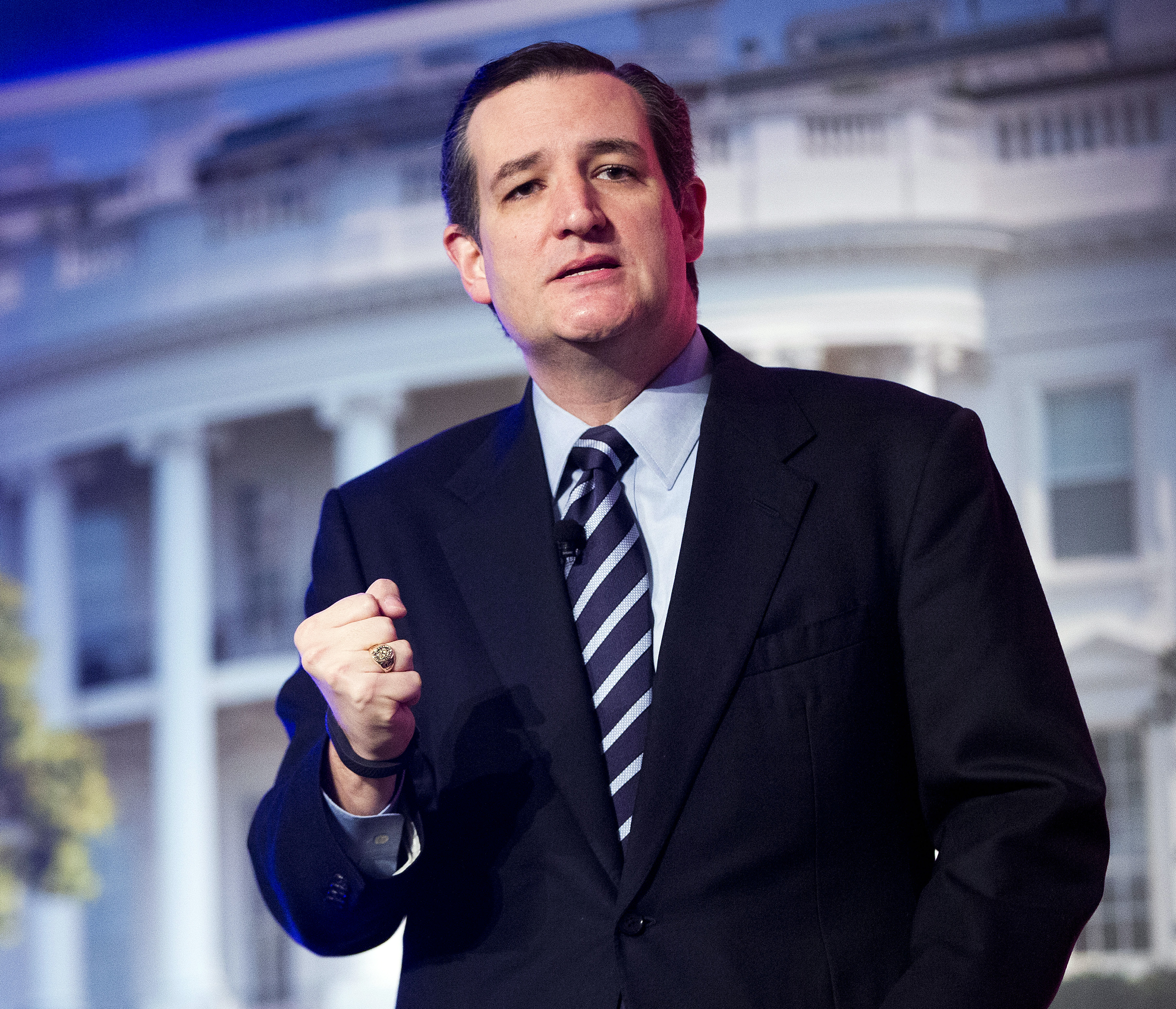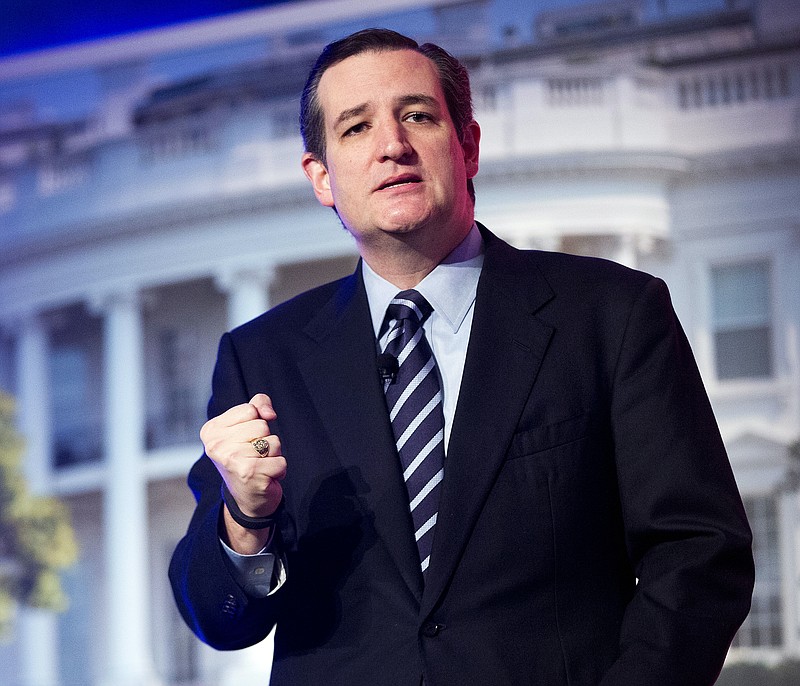 FILE - In this March 10, 2015, file photo, Sen. Ted Cruz, R-Texas, speaks at the International Association of Firefighters (IAFF) Legislative Conference and Presidential Forum in Washington. Cruz plans to announce Monday, March 23, 2015, that he is running for president. (AP Photo/Pablo Martinez Monsivais, File)
FILE - In this March 10, 2015, file photo, Sen. Ted Cruz, R-Texas, speaks at the International Association of Firefighters (IAFF) Legislative Conference and Presidential Forum in Washington. Cruz plans to announce Monday, March 23, 2015, that he is running for president. (AP Photo/Pablo Martinez Monsivais, File) WASHINGTON -- Sen. Ted Cruz is a decided underdog for the Republican presidential nomination, but he understands where his opening lies. And this, in turn, tells us a lot about the shape of the contest and the fight the GOP is about to have.
It is no accident that Cruz began his campaign at Liberty University -- founded by the late Rev. Jerry Falwell -- by asking evangelical conservatives to consolidate their support behind him.
Although Cruz has always been a religious conservative, he is much better known for his crusade against Obamacare and his willingness to shut down the federal government. His evangelical turn is his first play to create a base on the right end of the party to challenge Wisconsin Gov. Scott Walker as the main alternative to Jeb Bush.
The Cruz strategy starts with marginalizing former Arkansas Gov. Mike Huckabee and Ben Carson, both also in the running for evangelical votes. If Cruz pushes them aside, he can then go after Walker and, after that, Bush.
Perhaps all this is fanciful, but Cruz knows what he's doing.
So far, Walker's emergence is the key development in the Republican race. "Walker has made a decision to run at Bush from the right and he's trying to consolidate the very conservative vote," says Henry Olsen, a senior fellow at the Ethics and Public Policy Center and a shrewd conservative voting analyst. "The pop for Walker in the polls shows the deep desire of very conservative voters in the Republican Party to find an alternative to Bush."
The numbers tell the story. A McClatchy-Marist poll released earlier this month showed Bush and Walker at the front of the Republican pack. Among Republicans and independents who lean Republican, Bush had 19 percent, Walker had 18 percent.
But their constituencies are very different. Among moderates, Bush, the former Florida governor, led Walker 26 percent to 15 percent; conservatives gave Walker 20 percent to 18 percent for Bush. Among those who called themselves very conservative, on the other hand, Walker walloped Bush, 24 percent to 7 percent.
Walker's main competitors for the "very conservative" vote were Huckabee and Carson at 19 percent each. Overall, Huckabee got 10 percent and Carson 9 percent. Add those constituencies up and you have a number that competes with both Walker and Bush.
Whit Ayres, a Republican pollster who advises Sen. Marco Rubio, has a rule about his party's nomination contests: "No one faction is large enough to nominate its favorite candidate," he says. "Whoever is nominated will be rooted in one of the factions, but will be acceptable to a number of the factions."
Bush's base is some combination of the remaining moderates in the GOP and the less zealous conservatives who often go under the name "Establishment." Bush's first priority will be to eliminate all competition on that side of the party. This means it's important to him that New Jersey Gov. Chris Christie's potential candidacy never gets off the ground and that Rubio not threaten him among more moderate voters. Bush then needs to be competitive enough with more conservative sections of the party, though he could luck out -- as John McCain and Mitt Romney did -- and get to watch as his more conservative rivals claw at each other and split up the vote at the right end of the GOP.
Cruz's entry is thus very good news for Bush. He has as much interest in taking Walker down as Bush does, and the more right-of-center candidates there are on the ballot come next year, the better Bush's chances will be.
Therefore, don't believe anyone who says that little of what happens this year matters to an election that seems so far away. Cruz has just turned the battle for the political souls of religious conservatives into the first bloody crossroads of the GOP's struggle. And Scott Walker needs to watch his back.
Washington Post Writers Group
